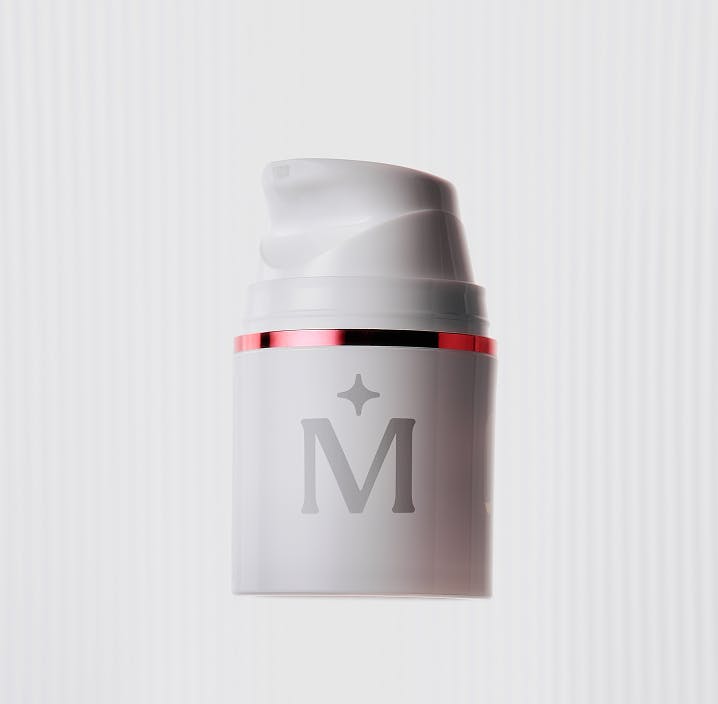Estriol 0.3% DMAE 3% Hyaluronic Acid 0.5%
These statements have not been evaluated by the Food and Drug Administration. This product is not intended to diagnose, treat, cure or prevent any disease.

Compounded Formulations:
Estriol 0.3% DMAE 3% Hyaluronic Acid 0.5% Face Cream
Mechanism of Action:
- Estriol increases collagen which increases firmness and elasticity.
- DMAE uses its acetylcholine-like functions to increase contractility and cell adhesion in the epidermis and dermis, resulting in the appearance of firmer skin.
- Hyaluronic acid is found throughout the body and due to hyaluronic acid's anionic properties, it attracts water to swell and create volume.
Benefits as a combination compounded product:
- Increase skin elasticity
- Improved skin moisture and firmness.
- Collagen synthesis and enhanced skin thickness
- TGF-β, a growth factor that stimulates fibroblast proliferation, is increased and MMP-1 gets reduced following topical administration of estrogen and estrogen-like derivatives, thus may increase collagen content in estrogen-treated skin and enhance skin thickness.
- Acetylcholine synthesis
- DMAE may enhance the synthesis of acetylcholine, which in turn strengthens the connection between nerves and skin muscles to improve skin tone and firmness.
- Moisture retention
- Hyaluronic acid plumps the skin by helping the skin retain moisture by binding to water molecules.
Suggested Dosing:
- Apply to the affected area topically once a day, typically to the face and neck.
Storage/Stability:
- Store at 20°C to 25°C (68°F to 77°F). Protect from heat and freezing.
Pregnancy:
- No controlled trials in pregnant or breastfeeding women. Pregnant women should be advised that high dose estrogen therapy has been associated with fetal malformations, so any use of estrogen containing products during pregnancy is often best avoided.
Breastfeeding:
- High dose of estrogen has been shown to decrease milk production. Limited topical use not studied.
Drug Interactions:
• DMAE oral supplement use may interact with barbiturates or interact with other drugs that have cholinergic and anticholinergic properties. Topical use of DMAE has not been shown to increase blood levels but theoretically could interact, so persons should be advised and use judiciously.